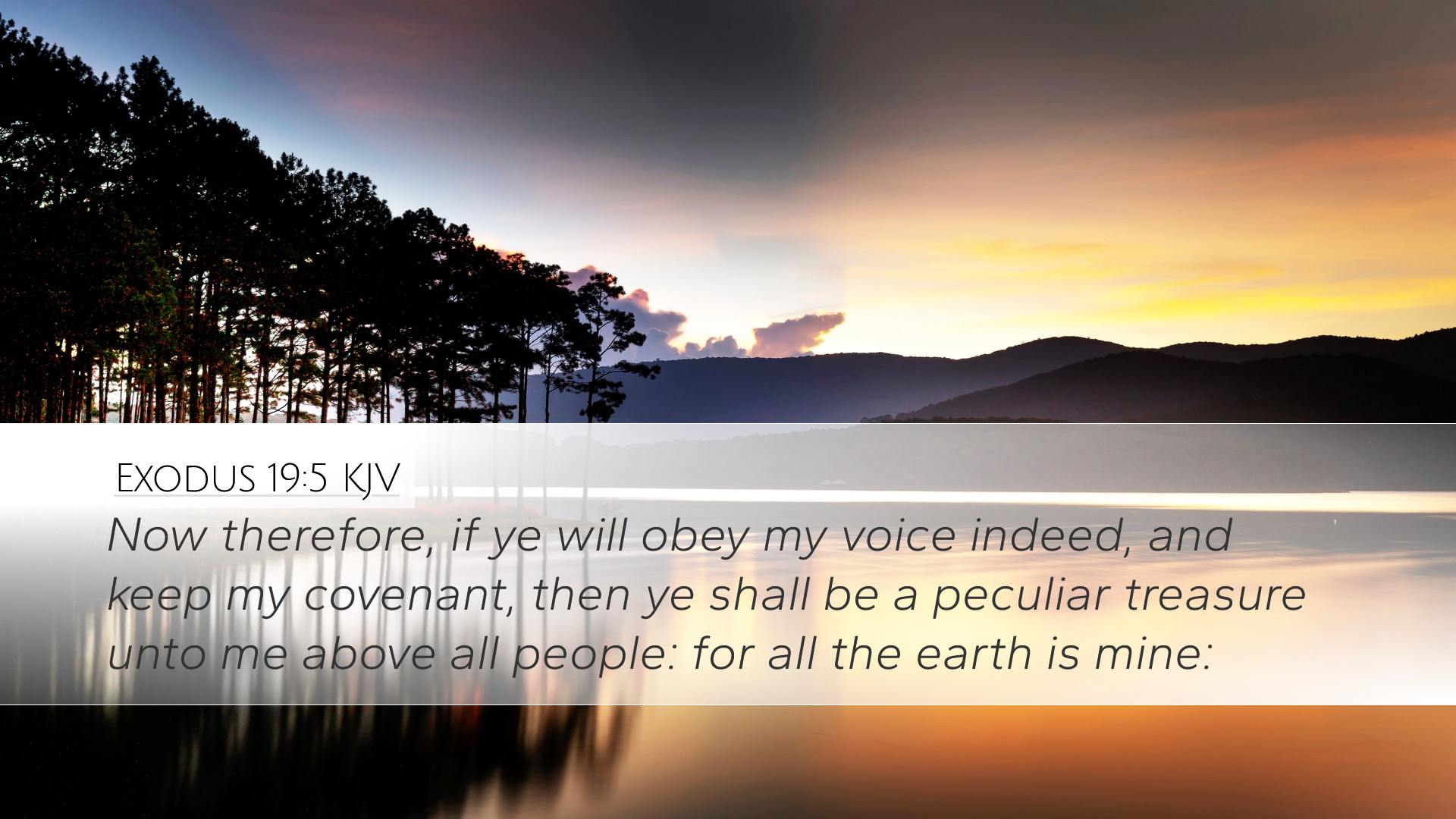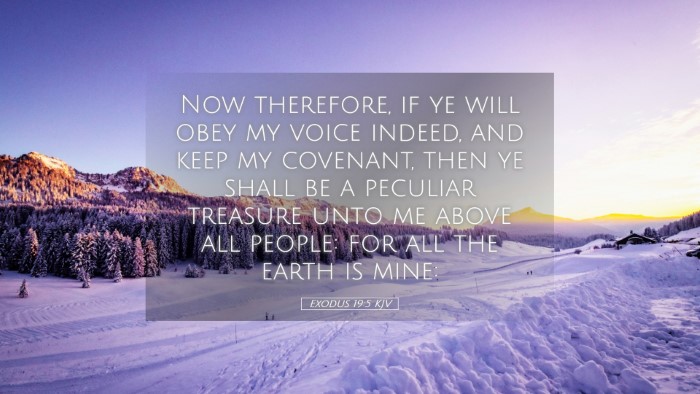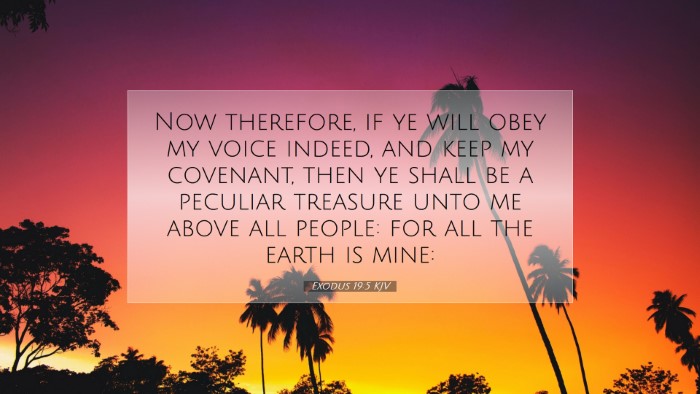Commentary on Exodus 19:5
Verse: "Now therefore, if you will indeed obey my voice and keep my covenant, you shall be my treasured possession among all peoples, for all the earth is mine."
Introduction
The verse from Exodus 19:5 encapsulates a pivotal moment in the relationship between God and His people, Israel. The covenant spoken of here is not merely a legal agreement but a deep relational commitment characterized by obedience, stewardship, and divine providence. The insights extracted from public domain commentaries such as those of Matthew Henry, Albert Barnes, and Adam Clarke provide profound theological and practical reflections that enhance our understanding of this verse.
The Call to Obedience
Matthew Henry emphasizes the conditional nature of the covenant with the phrase "if you will indeed obey." This illustrates God’s desire for a voluntary relationship with His people based upon their willingness to follow His commandments. It suggests that obedience is not merely a matter of compliance but flows from a heart aligned with God’s will.
Albert Barnes adds that God’s calling for obedience reflects His authority, highlighting that the response of the Israelites would determine their status as His treasured possession. This reciprocal relationship fosters a sense of responsibility among believers, reminding them that obedience is integral to their identity as God's chosen people.
Adam Clarke elaborates that obedience consists not simply in external actions but in the inner disposition of the heart. He argues that true obedience arises from faith, producing not only compliance but a transformative relationship with God. Thus, obedience is a crucial theme that runs throughout the entire biblical narrative.
God's Treasured Possession
The phrase "you shall be my treasured possession" holds profound significance. Henry explains that this reflects the unique relationship that Israel had with God among all nations. God's choice of Israel signifies His grace, marking them as special to Him, akin to a crown jewel in His collection.
Barnes notes that this treasured status comes with divine favor and blessings but also imposes moral and ethical obligations. This understanding pushes believers toward a higher standard of holiness and to live in a manner that reflects God's character to the world.
Clarke connects this treasured status to the New Covenant, indicating that all believers, through Christ, become part of this holy community. The transition from Israel to the Church represents a continuity of God’s redemptive plan, affirming that being treasured by God transcends ethnicity or geography.
The Sovereignty of God
The latter part of the verse states, "for all the earth is mine," presenting a powerful message about God’s sovereignty. Henry emphasizes that God’s ownership of the earth underlines His authority over all creation, which serves as a backdrop for His dealings with humanity. This sovereignty reassures believers that their standing with God is not predicated on their own merit.
Barnes also reflects on this sovereignty, citing examples from nature where everything belongs to God, establishing a priority for believers to recognize their place within His creation. The acknowledgment of God’s ownership cultivates a sense of humility and stewardship, demanding that believers live justly and rightly in a world that ultimately belongs to Him.
Clarke expounds upon this idea by indicating that understanding divine sovereignty instills confidence and hope in the believer. Recognizing that God rules over every aspect of life encourages believers to trust in His plans and purposes, especially in times of trial and uncertainty.
Application for Today
The Messenger of Obedience: Pastors and leaders can draw on this text to underscore the importance of obedience in the Christian life. Emphasizing that obedience leads to intimacy with God can motivate congregations to pursue a life of faithfulness and dedication.
Identity in Christ: Students and scholars might explore how the themes of covenant and treasured possession relate to their own identity in Christ. This understanding fosters confidence and purpose in life’s mission.
The Call to Stewardship: For theologians, this passage speaks to theological discussions on stewardship and creation care. Recognizing God’s ownership prompts deeper engagement in ecological and social issues as a reflection of godly stewardship.
Conclusion
Exodus 19:5 serves as a reminder of the profound and reciprocal covenant relationship between God and His people. Through insights gathered from prominent commentaries, we gain valuable perspectives on obedience, identity, and the character of God. Each reflection invites deeper contemplation of our own commitment to God and the implications of being His treasured possession. As we abide in His authority, may we seek to reflect His glory in all aspects of life.


